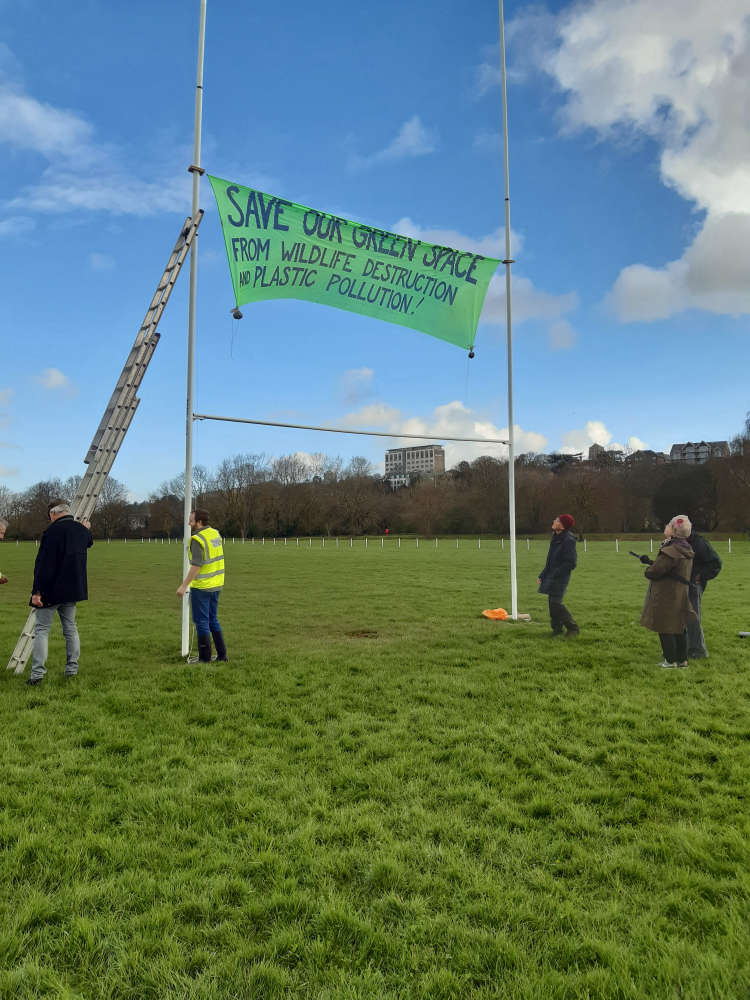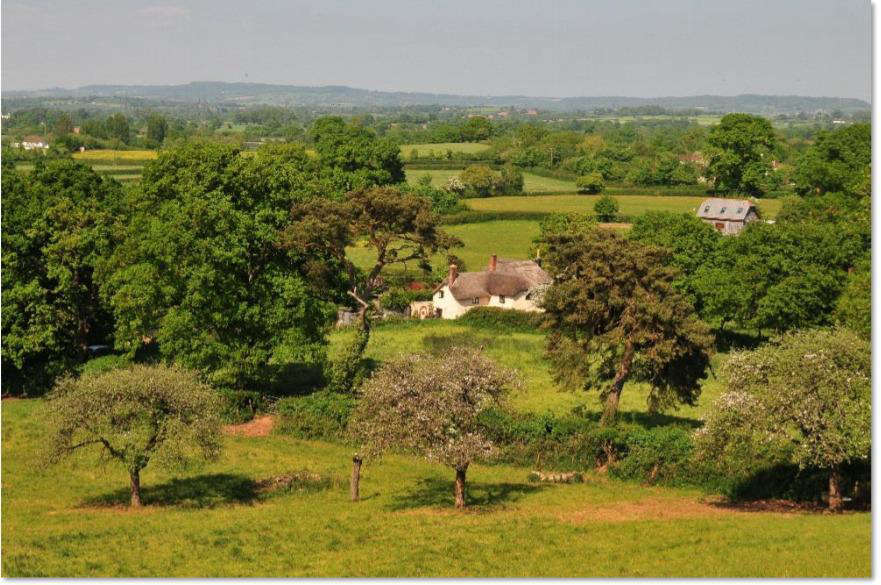
Protestors raised a hard-to-remove banner high above the Flowerpot Playing Field in Exeter as they continue to fight plans to install lifeless artificial turf on its rugby pitch.
The message, “Save our green space from wildlife destruction and plastic pollution!”, now hangs between the rugby posts. It continues over a year of opposition to Exeter College’s planned plastic pitch, due to be used by Exeter Chiefs, from the Exeter Extinction Rebellion biodiversity group.
“There could be up to 2.5 million worms under the Flowerpot rugby pitch,” says Mathew, a member of the group who lives nearby in St. Thomas. “The birds in the fields need these worms for food. For some species of UK birds numbers are just a quarter of what they were 50 years ago. Each small decision that makes their lives harder means more birds die. We must not allow their extinction.”
Very few local people know about the plans, which also include surrounding the currently openly accessible playing area with a three metre high fence. In December, the group planted wild seeds and flowers in the shape of Extinction Rebellion's Hourglass logo, symbolising that time is running out, and built a sign explaining it. However someone had ripped the sign out by the next day, hampering public awareness. During both that protest and today’s, passers-by who were told about the plans for the plastic pitch were outraged.
After Exeter College applied for planning approval for the pitch, fence, and new changing rooms in November 2021, it was granted despite 32 objections and an online petition against it. As the men’s and women’s academies of the Exeter Chiefs Rugby Club would use the pitch, people have written letters to both the college and the Chiefs to complain. They have sent at least 30 letters to both Tony Rowe, the club’s chair, and John Laramy, the college’s Chief Executive Officer.
“Laying the plastic pitch is an act of ecocide,” says Margaret Turner, who is also a member of the group and lives near the river in St Leonards. Ecocide refers to any deliberate action that causes severe, widespread or long-term environmental damage. “For instance there's the horrifying fact that as the astroturf wears it will shed tiny particles of plastic which will eventually wash down to pollute the River Exe. Here they can accumulate in the digestive tract of animals and fish, including the magnificent but threatened Atlantic Salmon, affecting their behaviour, growth and their very survival.”
Exeter Extinction Rebellion continually seeks to protect nature, including stopping climate change. Local people must have a greater say in decisions that gradually erode our environment. Through non-violent direct action and creative demonstrations, Exeter Extinction Rebellion aims to drive change and inspire others to join them in helping create a sustainable future.

 RAF Exeter Town Show: A Weekend of Discovery and Excitement
RAF Exeter Town Show: A Weekend of Discovery and Excitement
 Police are seeking the public’s help to find a wanted Exeter man
Police are seeking the public’s help to find a wanted Exeter man
 East Devon environment budget cut by £50k as demands get tougher
East Devon environment budget cut by £50k as demands get tougher
 Online petition system set to launch in East Devon
Online petition system set to launch in East Devon
 New Red Coat tours revealed as part of summer programme
New Red Coat tours revealed as part of summer programme
 Devon Loves Dogs is best practice
Devon Loves Dogs is best practice
 Food bank retained amid former boys’ school transformation into homes
Food bank retained amid former boys’ school transformation into homes
 Local Role Models Empower Sidmouth College Girls for Career Success
Local Role Models Empower Sidmouth College Girls for Career Success










